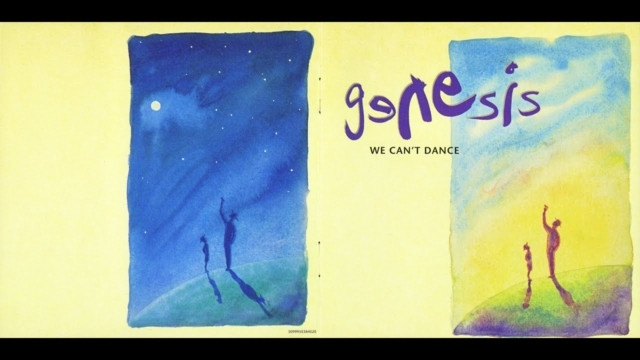Genesis, the iconic band featuring Mike Rutherford, Tony Banks, and Phil Collins, were on the cusp of their “Last Domino?” tour, marking their first North American concerts in over a decade. This period also coincided with reflections on their extensive catalog, particularly their 1991 album, We Can’t Dance. This album, a rich and complex work, featured standout tracks like “No Son of Mine,” “Jesus He Knows Me,” and the focus of our discussion, “I Can’t Dance,” alongside deeper cuts such as “Way of the World,” “Driving the Last Spike,” and “Dreaming While You Sleep.”
 Genesis band members Mike Rutherford, Tony Banks, and Phil Collins during We Can't Dance era
Genesis band members Mike Rutherford, Tony Banks, and Phil Collins during We Can't Dance era
We Can’t Dance, released as a generous collection of strong songs at a single album price, arrived at a time when a long-simmering debate about Genesis’ direction reached a boiling point. The question was whether Phil Collins’ successful solo career, running parallel for a decade, had steered Genesis away from their progressive rock origins. It’s worth noting that during this same era, Tony Banks and Mike Rutherford also explored solo ventures, with Rutherford achieving significant success with Mike + the Mechanics. Collins, however, ascended to global superstardom, becoming a ubiquitous presence across all media.
 Genesis group shot from We Can't Dance album era
Genesis group shot from We Can't Dance album era
By the time We Can’t Dance was released and Genesis embarked on their stadium tour, music critics seemed fixated on comparing the album to Phil Collins’ solo work. This comparison felt somewhat forced and missed the point. Interestingly, when Peter Gabriel released Us shortly after We Can’t Dance, there was a notable absence of similar comparisons to his Genesis past, despite his significant role in the band’s early progressive sound. The responsibility for managing the diverse musical output from the talented members of Genesis, both then and now, arguably lies with media programmers and editors. If there was a perception of over-saturation, it stemmed from media gatekeepers leveraging the band’s popularity for their own gain, a phenomenon observed with other major artists like Elton John, Rod Stewart, Sting, Bon Jovi, Bryan Adams, and U2.


